Trigger Warning: This article discusses mental health conditions and includes images that some may find distressing. If you or someone you know is struggling with a mental health issue, please seek professional help and support right away.
Mental health awareness has come a long way, with conditions like depression, anxiety, and bipolar disorder receiving substantial attention.
However, there are lesser known mental health conditions that often go underreported, leading to misunderstanding and isolation for those affected.
As such, let’s delve into ten unusual mental health disorders, its symptoms, causes, and available treatments.
1. Cotard’s Syndrome (Walking Corpse Syndrome)

Cotard’s Syndrome, also known as ‘Walking Corpse Syndrome’, is an extremely rare mental health condition.
Individuals with Cotard’s Syndrome genuinely believe they are dead, do not exist, or have lost essential body parts.
This condition is often accompanied by severe depression, leading to a decreased desire for self-care activities, such as eating and drinking.
The precise cause of Cotard’s Syndrome remains uncertain, but it is believed to be associated with a combination of neurological and psychological factors.
Treatment usually involves a holistic approach, including psychotherapy and medication to address the underlying issues.
2. Capgras Delusion

Capgras Delusion is a rare psychiatric disorder in which an individual holds a firm belief that a loved one has been replaced by an identical-looking imposter.
This condition frequently co-occurs with other mental health disorders, most notably schizophrenia.
Managing Capgras Delusion typically entails a multifaceted approach involving antipsychotic medication and psychotherapy to address and alleviate the delusional beliefs.
3. Exploding Head Syndrome
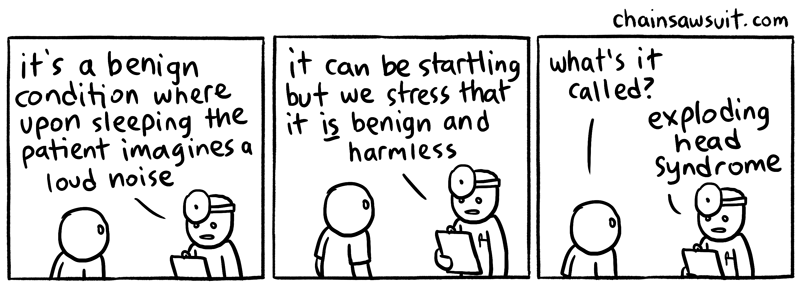
Exploding Head Syndrome, which thankfully doesn’t involves heads exploding in real time, is a sleeping disorder marked by sudden and incredibly loud auditory hallucinations occurring as an individual falls asleep or wakes up.
These hallucinations can be disturbing, manifesting itself as deafening noises such as explosions, crashes, or screams.
While the exact cause is not yet fully understood, it is often linked to stress and sleep deprivation as potential triggers.
To manage this condition, experts recommend strategies such as stress reduction, improved sleep hygiene, and medication to treat any associated anxiety or sleep disturbances.
4. Alice in Wonderland Syndrome (AIWS)
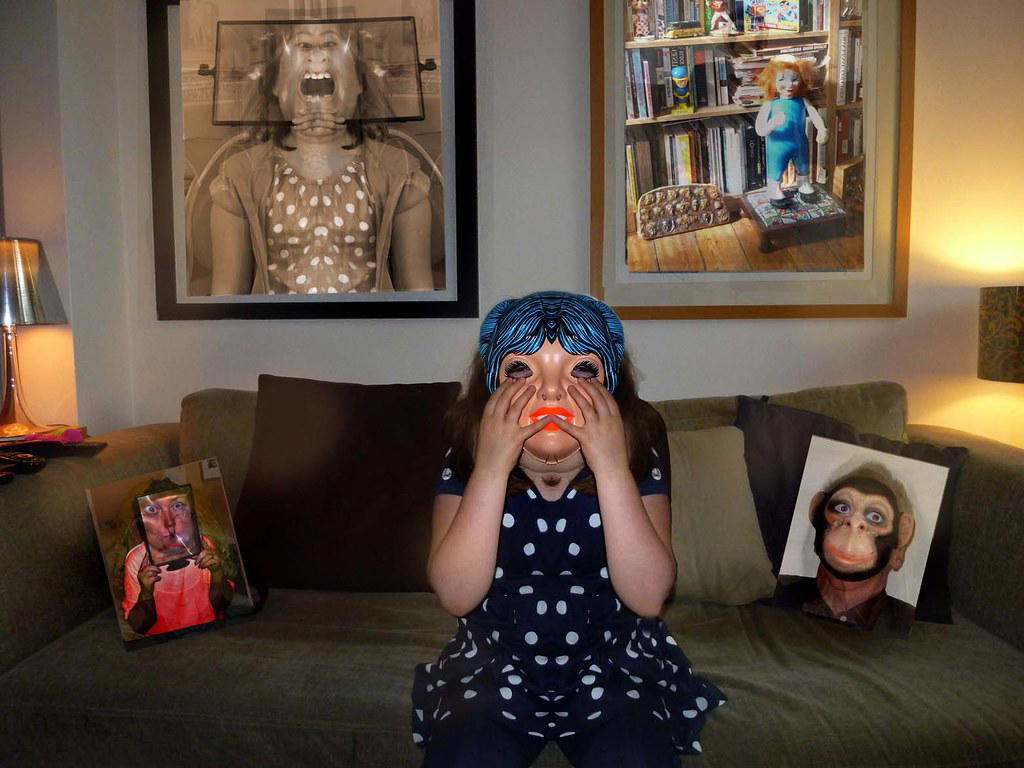
Alice in Wonderland Syndrome (AIWS) is a neurological disorder where individuals experience distortions in their perception of reality.
Like the book Alice in Wonderland, objects and body parts may be perceived as larger or smaller than their actual size.
This condition is often associated with migraines and infections and is more prevalent in children.
5. Trichotillomania (Hair-Pulling Disorder)
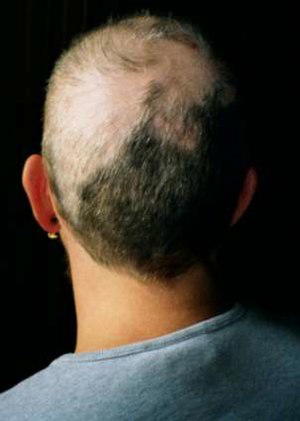
Trichotillomania, often referred to as the hair-pulling disorder, is classified as an impulse control disorder.
People with this condition experience an irresistible urge to pull out their own hair, which can lead to hair loss and skin damage. Although the exact cause is still unknown, it is frequently linked to stress and anxiety.
Treatment for trichotillomania typically incorporates cognitive-behavioral therapy (CBT), habit reversal training, and medication to address underlying anxiety or obsessive-compulsive tendencies.
6. Foreign Accent Syndrome
Foreign Accent Syndrome is an exceptionally rare condition. It occurs when individuals develop a foreign accent following a brain injury or other neurological events.
While it may seem like a linguistic curiosity, it can be emotionally distressing to those affected.
Coping with Foreign Accent Syndrome typically involves speech therapy and counseling to help individuals adapt to their new way of speaking and manage any associated emotional challenges.
7. Fregoli Delusion
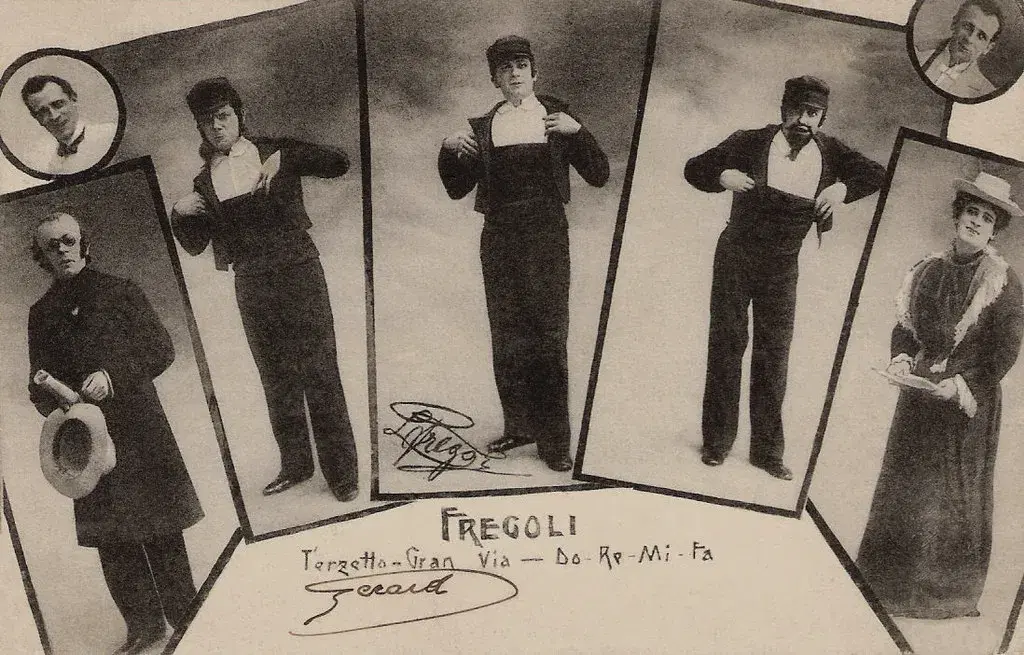
Fregoli Delusion is a rare psychological disorder where individuals believe that different people are, in fact, the same person in disguise.
They often feel persecuted and paranoid, thinking that the disguised person is following them.
This condition is often associated with schizophrenia. Treatment generally involves antipsychotic medication and psychotherapy to address the delusions and paranoia.
8. Body Dysmorphic Disorder
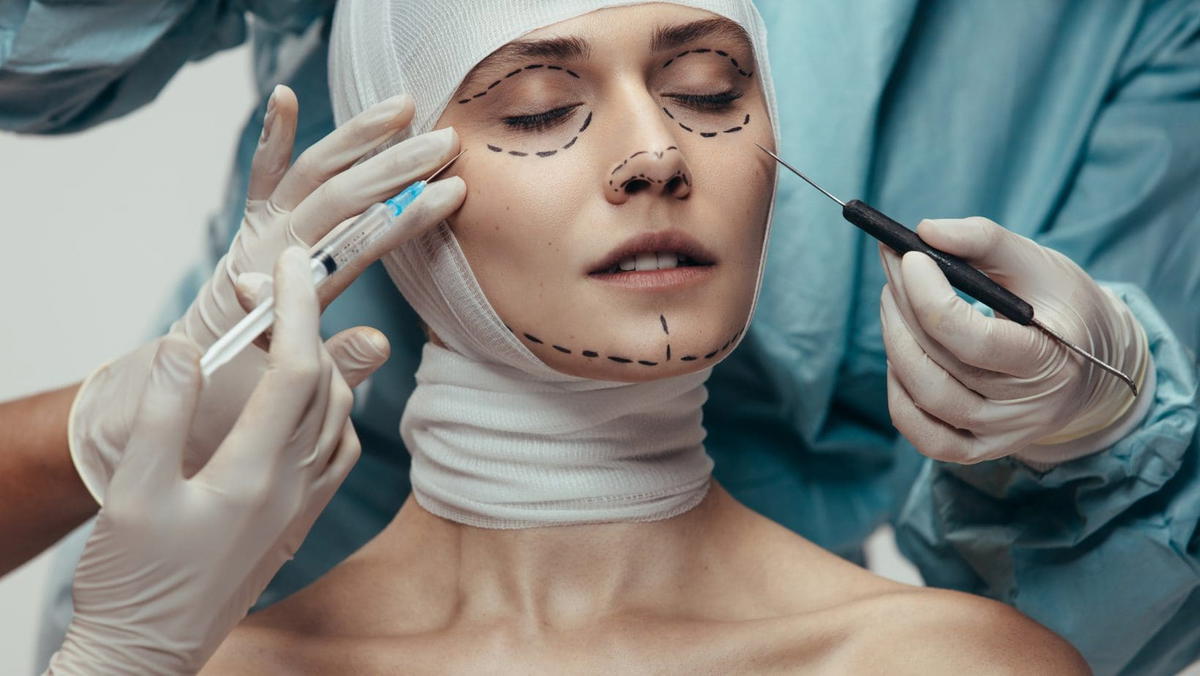
Body Dysmorphic Disorder (BDD) is characterised by an intense preoccupation with perceived flaws or defects in physical appearance, which may be minor or even imagined.
People with BDD may engage in excessive grooming, cosmetic procedures, or seek reassurance about their appearance.
The primary cause is believed to be a combination of genetic, environmental, and neurological factors. Effective treatment typically involves cognitive-behavioural therapy (CBT), medication, and support groups.
9. Pica

Pica is an eating disorder characterised by the consumption of non-nutritive, non-food substances. Individuals with Pica may ingest items such as dirt, chalk, paper, or even hair.
It is often associated with nutritional deficiencies, developmental disorders, or psychological stressors.
Treatment depends on the individual’s specific needs and may include therapy, nutritional guidance, and addressing any underlying issues.
10. Misophonia
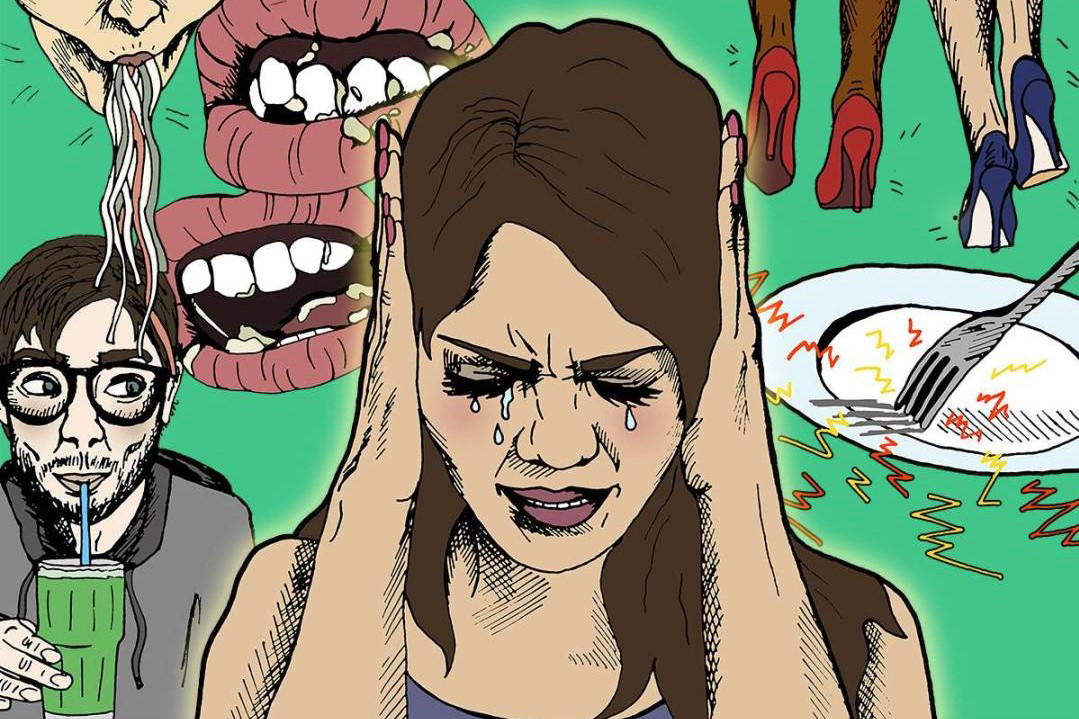
Misophonia is a term for when everyday sounds like chewing or tapping become nails on a chalkboard. People with this condition have strong, often intense negative reactions to certain sounds.
The exact cause of misophonia is not well understood, but it is believed to involve an abnormal processing of sensory information in the brain.
Management strategies often involve cognitive-behavioural therapy (CBT) and sound therapy to help individuals cope with and reduce their reactions to triggering stimuli.
If you need a listening ear or someone to talk to, please call the following helplines:




